Houhua Li, Xiaoming Wang and Xiaoguang Lei*
Angew. Chem. Int. Ed . 2012, 51, 491-495; Angew. Chem . 2012 , 124 , 506-510
Drei?Lycopodium-Alkaloide vom Fawcettimin- und Serratinin-Typ wurden ausgehend von einem gemeinsamen tetracyclischen Spirodiketon-Intermediat in kurzen Totalsynthesen hergestellt (siehe Schema). Das Intermediat selbst wurde über eine Biosynthese-inspirierte transannulare N-C-Knüpfung zum spirokonfigurierten Kohlenstoffzentrum und eine Hydroxy-gelenkte SmI2-vermittelte View Full Article
Sun, L.; Wang, H.; Wang, Z.; He, S.; Chen, S.; Liao, D.; Wang, L.; Yan, J.; Liu, W.; Lei, X.* ; Wang, X. *
Cell 2012, 148, 213-227 (News stories describing this work were highlighted in Chem. & Eng. News 2012 , 5 , 40 ; Nature China 2012 , February 1; Asian Scientist 2012 , January31; and Nature Reviews Molecular Cell Biology , 2012, Feb. 8)
The receptor-interacting serine-threonine kinase 3 (RIP3) is a key signaling molecule in the programmed necrosis (necroptosis) pathway. This pathway plays important roles in a variety of physiological and pathological conditions, including development, tissue damage response, and antiviral immunity. Here, we report the identification of a small molecule called (E)-?N?-(4-(?N?-(3-methoxypyrazin-2-yl)sulfamoyl)phenyl)-3-(5-nitrothiophene-2-yl)acrylamide?-hereafter referred to as necrosulfonamide?-that specifically blocks […]
Houhua Li, Xiaoming Wang, Benke Hong and Xiaoguang Lei*
J. Org. Chem. 2013, 78, 800-821 Featured and Cover Article
The collective total synthesis of?Lycopodium?alkaloids (+)-fawcettimine, (+)-fawcettidine, (+)-alopecuridine, (-)-lycojapodine A, and (-)-8-deoxyserratinine has been accomplished from a common precursor based on a highly concise route inspired by the proposed biosynthesis of the fawcettimine- and serratinine-type alkaloids. An intramolecular?C?-alkylation enabled efficient installation of the challenging spiro quaternary carbon center and the […]
Wang, G.; Wang, X.; Yu, H.; Wei, S.; Williams, N.; Holmes, D. L.; Halfmann, R.; Naidoo, J.; Wang, L.; Li, L.; Chen, S.; Harran, P.; Lei, X.* ; Wang, X. *
Nat. Chem. Biol. 2013, 9, 84-89. ( News stories describing this work were highlighted in Chem. & Eng. News 2013 , 2 , 37 ; Nature Asia 2012 , December 24)
Tumor necrosis factor (TNF)-related apoptosis-inducing ligand ( TRAIL ) activates apoptosis through the death receptors DR4 and DR5 . Because of its superior safety profile and high tumor specificity compared to other TNF family members, recombinant soluble TRAIL and agonistic antibodies against its receptors are actively being developed for clinical cancer therapy. Here, we describe […]
Ainsliatrimers A and B are two recently isolated complex sesquiterpenoid natural products that display the unprecedented chemical motifs and remarkable anti-cancer activities. The exact structures as well as the mechanism of anti-cancer action for ainsliatrimers A and B remain to be elucidated. Here we report the first concise and biomimetic syntheses of (-)-ainsliatrimers A and […]
Li, Q.; Dong, T.; Liu, X.; Lei, X.*
J. Am. Chem. Soc. 2013 , 135 , 4996-4999 . ( News story describing this work was highlighted in Chem. & Eng. News 2013 , 14 , 37 ).
There is an increasing interest in the use of bioorthogonal ligation to advance biomedical research through selective labeling of biomolecules in living systems. Accordingly, discovering new reactions to expand the toolbox of bioorthogonal chemistry is of particular interest to chemical biologists. Herein we report a new bioorthogonal ligation enabled by click hetero-Diels–Alder (HDA) cycloaddition […]
Shun Su, Dayle E. Acquilano, Jeevanandam Arumugasamy, Aaron B. Beeler, Erin L. Eastwood, Joshua R. Giguere, Ping Lan, Xiaoguang Lei, Geanna K. Min, Adam R. Yeager, Ya Zhou, James S. Panek, John K. Snyder, Scott E. Schaus, and John A. Porco, Jr.
Org. Lett . 2005 , 7 , 2751-2754
The synthesis of a complex hybrid oxime library is reported utilizing convergent ligation of alkoxyamine and carbonyl monomers via “chemical domain shuffling
Xiaoguang Lei, Nava Zaarur, Michael Y. Sherman, John A. Porco, Jr.
J. Org. Chem. 2005 , 70, 6474-6483
We have accomplished the synthesis of a complex chemical library via elaboration of angular epoxyquinol scaffolds with distinct skeletal frameworks. The key strategy involves highly stereocontrolled [4 + 2] Diels?Alder cycloadditions of chiral, nonracemic epoxyquinol dienes to generate the scaffolds. Further scaffold diversification involves hydrogenation, epimerization, dehydration, and condensation of the carbonyl group with alkoxyamine and carbazate building blocks. Further elaboration of the scaffolds also provided new skeletal frameworks using hydroxyl-directed Diels?Alder cycloaddition and reductive N?N bond cleavage. The overall process afforded 244 highly complex and functionalized compounds. Preliminary biological screening of the library uncovered six compounds which showed significant inhibition of Hsp 72 induction.
-
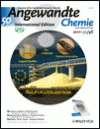
-

-
-
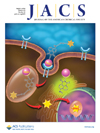
-
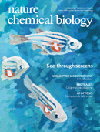
-
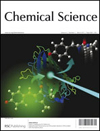
-
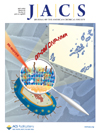
-

-

-
Total Syntheses of Lycopodium Alkaloids (+)-Fawcettimine, (+)-Fawcettidine, and (-)-8-Deoxyserratinine
Houhua Li, Xiaoming Wang and Xiaoguang Lei*
Angew. Chem. Int. Ed . 2012, 51, 491-495; Angew. Chem . 2012 , 124 , 506-510
Drei?Lycopodium-Alkaloide vom Fawcettimin- und Serratinin-Typ wurden ausgehend von einem gemeinsamen tetracyclischen Spirodiketon-Intermediat in kurzen Totalsynthesen hergestellt (siehe Schema). Das Intermediat selbst wurde über eine Biosynthese-inspirierte transannulare N-C-Knüpfung zum spirokonfigurierten Kohlenstoffzentrum und eine Hydroxy-gelenkte SmI2-vermittelte View Full Article
Mixed Lineage Kinase Domain-like Protein Mediates Necrosis Signaling Downstream of RIP3 Kinase
Sun, L.; Wang, H.; Wang, Z.; He, S.; Chen, S.; Liao, D.; Wang, L.; Yan, J.; Liu, W.; Lei, X.* ; Wang, X. *
Cell 2012, 148, 213-227 (News stories describing this work were highlighted in Chem. & Eng. News 2012 , 5 , 40 ; Nature China 2012 , February 1; Asian Scientist 2012 , January31; and Nature Reviews Molecular Cell Biology , 2012, Feb. 8)
The receptor-interacting serine-threonine kinase 3 (RIP3) is a key signaling molecule in the programmed necrosis (necroptosis) pathway. This pathway plays important roles in a variety of physiological and pathological conditions, including development, tissue damage response, and antiviral immunity. Here, we report the identification of a small molecule called (E)-?N?-(4-(?N?-(3-methoxypyrazin-2-yl)sulfamoyl)phenyl)-3-(5-nitrothiophene-2-yl)acrylamide?-hereafter referred to as necrosulfonamide?-that specifically blocks […]
Biomimetic Syntheses of (-)-Gochnatiolides A-C and (-)-Ainsliadimer B
Chao Li, Longyang Dian, Weidong Zhang, and Xiaoguang Lei*
J. Am. Chem. Soc. 2012, 134, 12414-12417
We report the first biomimetic syntheses of (
Collective Synthesis of Lycopodium Alkaloids and Tautomer Locking Strategy for the Total Synthesis of ( – )-Lycojapodine A
Houhua Li, Xiaoming Wang, Benke Hong and Xiaoguang Lei*
J. Org. Chem. 2013, 78, 800-821 Featured and Cover Article
The collective total synthesis of?Lycopodium?alkaloids (+)-fawcettimine, (+)-fawcettidine, (+)-alopecuridine, (-)-lycojapodine A, and (-)-8-deoxyserratinine has been accomplished from a common precursor based on a highly concise route inspired by the proposed biosynthesis of the fawcettimine- and serratinine-type alkaloids. An intramolecular?C?-alkylation enabled efficient installation of the challenging spiro quaternary carbon center and the […]
Small Molecule Activation of the TRAIL Receptor DR5 in Human Cancer Cells
Wang, G.; Wang, X.; Yu, H.; Wei, S.; Williams, N.; Holmes, D. L.; Halfmann, R.; Naidoo, J.; Wang, L.; Li, L.; Chen, S.; Harran, P.; Lei, X.* ; Wang, X. *
Nat. Chem. Biol. 2013, 9, 84-89. ( News stories describing this work were highlighted in Chem. & Eng. News 2013 , 2 , 37 ; Nature Asia 2012 , December 24)
Tumor necrosis factor (TNF)-related apoptosis-inducing ligand ( TRAIL ) activates apoptosis through the death receptors DR4 and DR5 . Because of its superior safety profile and high tumor specificity compared to other TNF family members, recombinant soluble TRAIL and agonistic antibodies against its receptors are actively being developed for clinical cancer therapy. Here, we describe […]
Biomimetic Syntheses and Structural Elucidation of the Apoptosis-Inducing Sesquiterpenoid Trimers: (-)-Ainsliatrimers A and B
Li, C.; Dong, T.; Dian, L.; Zhang, W.; Lei, X.*
Chem. Sci . 2013, 4, 1163-1167
Ainsliatrimers A and B are two recently isolated complex sesquiterpenoid natural products that display the unprecedented chemical motifs and remarkable anti-cancer activities. The exact structures as well as the mechanism of anti-cancer action for ainsliatrimers A and B remain to be elucidated. Here we report the first concise and biomimetic syntheses of (-)-ainsliatrimers A and […]
A Bioorthogonal Ligation Enabled by Click Cycloaddition of o-Quinolinone Quinone Methide and Vinyl Thioether
Li, Q.; Dong, T.; Liu, X.; Lei, X.*
J. Am. Chem. Soc. 2013 , 135 , 4996-4999 . ( News story describing this work was highlighted in Chem. & Eng. News 2013 , 14 , 37 ).
There is an increasing interest in the use of bioorthogonal ligation to advance biomedical research through selective labeling of biomolecules in living systems. Accordingly, discovering new reactions to expand the toolbox of bioorthogonal chemistry is of particular interest to chemical biologists. Herein we report a new bioorthogonal ligation enabled by click hetero-Diels–Alder (HDA) cycloaddition […]
Synthesis of a Polymer-Supported Anthracene and Its Application as a Dienophile Scavenger
Xiaoguang Lei and John A. Porco, Jr.
Org. Lett . 2004 , 6 , 795-798
A polymer-supported anthracene has been prepared and employed as a dienophile scavenger in Diels?Alder cycloadditions.
Convergent Synthesis of a Complex Oxime Library Using Chemical Domain Shuffling
Shun Su, Dayle E. Acquilano, Jeevanandam Arumugasamy, Aaron B. Beeler, Erin L. Eastwood, Joshua R. Giguere, Ping Lan, Xiaoguang Lei, Geanna K. Min, Adam R. Yeager, Ya Zhou, James S. Panek, John K. Snyder, Scott E. Schaus, and John A. Porco, Jr.
Org. Lett . 2005 , 7 , 2751-2754
The synthesis of a complex hybrid oxime library is reported utilizing convergent ligation of alkoxyamine and carbonyl monomers via “chemical domain shuffling
Stereocontrolled Synthesis of a Complex Library via Elaboration of Angular Epoxyquinol Scaffolds
Xiaoguang Lei, Nava Zaarur, Michael Y. Sherman, John A. Porco, Jr.
J. Org. Chem. 2005 , 70, 6474-6483
We have accomplished the synthesis of a complex chemical library via elaboration of angular epoxyquinol scaffolds with distinct skeletal frameworks. The key strategy involves highly stereocontrolled [4 + 2] Diels?Alder cycloadditions of chiral, nonracemic epoxyquinol dienes to generate the scaffolds. Further scaffold diversification involves hydrogenation, epimerization, dehydration, and condensation of the carbonyl group with alkoxyamine and carbazate building blocks. Further elaboration of the scaffolds also provided new skeletal frameworks using hydroxyl-directed Diels?Alder cycloaddition and reductive N?N bond cleavage. The overall process afforded 244 highly complex and functionalized compounds. Preliminary biological screening of the library uncovered six compounds which showed significant inhibition of Hsp 72 induction.